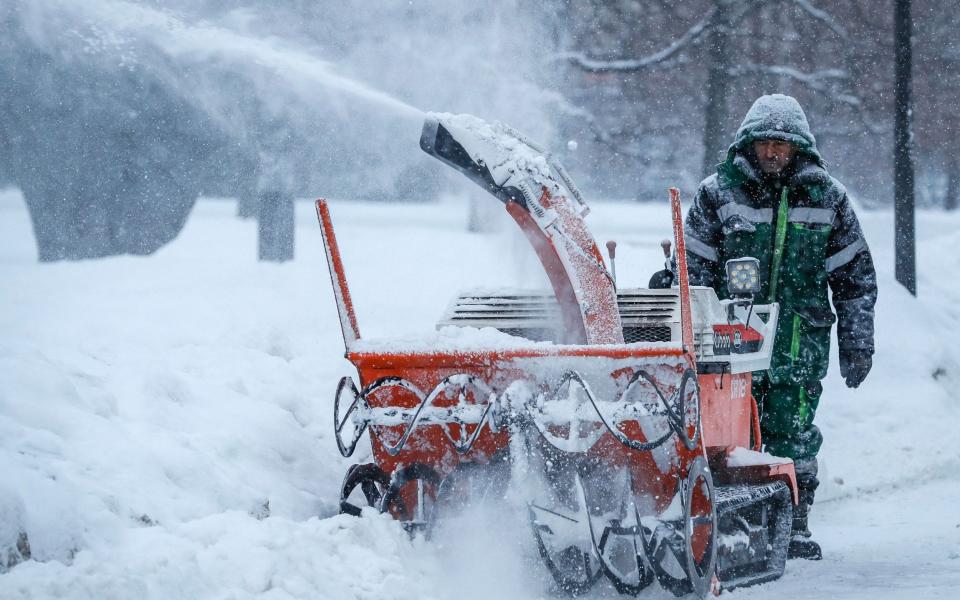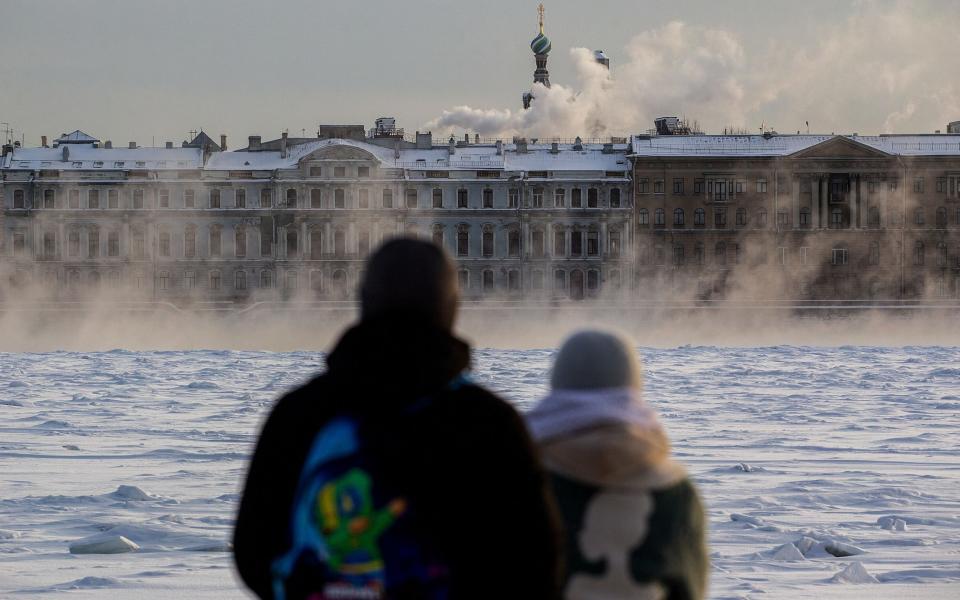Freezing Russians forced to cook their meals in the street

Thousands of Russians are living without heating through a freezing winter that is breaking the country’s fragile Soviet-era infrastructure.
Hot water pipes are bursting, electricity is failing and radiators are freezing across Russia, triggering complaints from angry locals who have accused officials of incompetence two months before a presidential election.
In videos posted this week from Nizhny Novgorod, 265 miles east of Moscow, residents were evacuating apartments flooded with steaming boiling water.
“The apartment is completely destroyed. The apartment is uninhabitable,” said one man as he filmed water pouring through the ceiling.
After dozens of residential buildings were left without central heating in Klimovsk, a town in the Moscow region, a mobile kitchen with a wood-burning furnace was set up for residents left cold and unable to cook.
In Novosibirsk, Siberia, a major pipe burst on Wednesday, projecting a spout of boiling water high into the air which burnt 13 people and left entire apartment blocks without heating during one of Russia’s coldest winters for decades.
A resident of Novosibirsk said she was upset but was not surprised.
“Of course people are upset. They have been in the cold, with children, since January 11,” she said, declining to give her name. “I wasn’t surprised at all. It would have happened at some point because the pipes that burst were laid back in 1973 and 1963.”
Municipal officials have admitted that the burst pipe in Novosibirsk was laid in 1963 and was last repaired in 1990, a year before the Soviet Union collapsed.
In Khimki, a suburb of Moscow, freezing residents have taken to huddling around a fire on the street to keep warm in temperatures of -25C.
“We haven’t had any heating since January 2. The authorities are aware of the problem,” said a woman in a video of several people holding up ‘SOS’ signs. “Please help us, we are desperate.”

Campaigners have said that chronic underfunding has undermined civilian infrastructure in Russia.
Russia’s centrally controlled hot water systems were built in the Soviet Union and struggle under extreme temperature changes which have been harsh this year.
Analysts said that with an election in mid-March, these failures undermine the Kremlin’s message that Vladimir Putin is the tough and competent leader that ordinary Russians need, although he is still guaranteed to win.
“The heating emergencies around Russia, the result of long-term underinvestment in public utilities infrastructure, complicate that narrative,” said Ben Noble, associate professor of Russian Politics at UCL.
And civilians’ gripes are unlikely to be smoothed out any time soon.

Putin has prioritised his army over civilian demands, approving a massive boost in military funding and co-opting everything from shopping malls to bakeries to produce weapons for the war effort in Ukraine.
But fracturing infrastructure is not the only internal problem facing Putin. Although protests are effectively banned, demonstrations in Bashkortostan, a region with a large Muslim population that lies south of the Ural Mountains, against mobilisation have been growing.
People in Dagestan, in southern Russia on the Caspian Sea, have also been protesting since the summer about failing infrastructure and the wives and mothers of mobilised men have been campaigning for the return of their men from frontlines in Ukraine.

